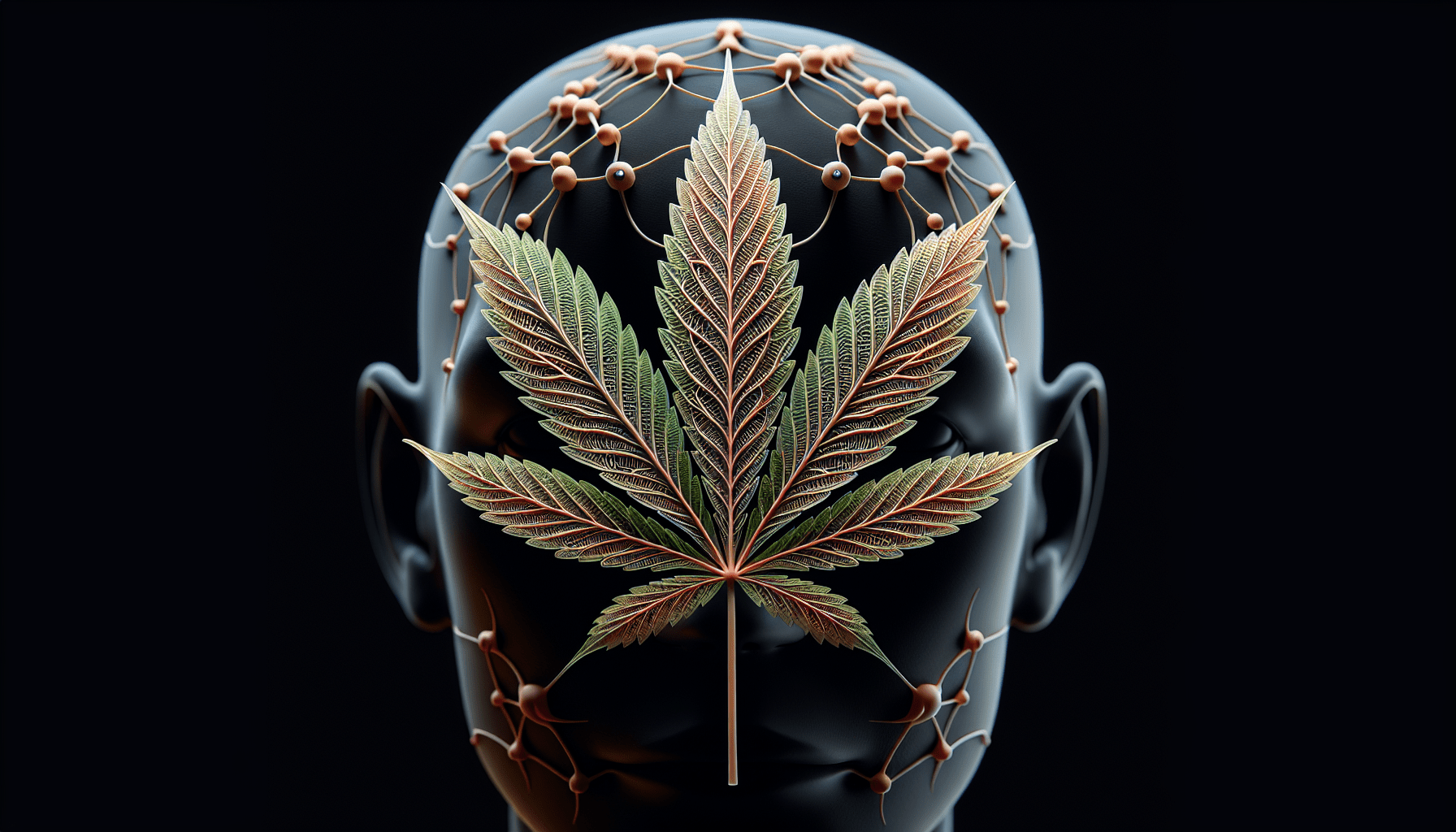So, you’re curious about the intricate relationship between cannabis and neurotransmitters in the brain, huh? Well, buckle up because we’re about to take a fascinating journey into the depths of this mind-altering plant’s effects on those tiny chemical messengers that control our thoughts and emotions. Get ready to uncover the intriguing ways in which cannabis interacts with neurotransmitters, shaping our perception, mood, and overall mental well-being. Trust me, this is one captivating ride you won’t want to miss out on!
Introduction
Welcome to this comprehensive article exploring the fascinating world of how cannabis affects neurotransmitters in the brain! Neurotransmitters play a crucial role in our brain’s communication system, and cannabis has been found to interact with these neurotransmitters in various ways. In this article, we will provide you with a detailed understanding of neurotransmitters, delve into the interaction between cannabis and neurotransmitters, and explore the specific impact of cannabis on dopamine, serotonin, GABA, glutamate, and the endocannabinoid system. Get ready to embark on a journey of scientific discovery!
Understanding Neurotransmitters
Definition and functions of neurotransmitters
Neurotransmitters are chemical messengers that transmit signals between nerve cells, also known as neurons. They play a vital role in various physiological processes, including regulating mood, emotions, behavior, cognition, and overall brain function. These neurotransmitters bind to specific receptors on the receiving neuron, thereby transmitting signals across synapses to allow for efficient communication between neurons.
Types of neurotransmitters
There are numerous neurotransmitters in the brain, each with its own specific functions and roles. Some of the most well-known neurotransmitters include dopamine, serotonin, GABA (gamma-aminobutyric acid), and glutamate. These neurotransmitters work together in complex networks to maintain balance and optimal functioning within the brain.

Interaction of Cannabis with Neurotransmitters
Overview of cannabis and its compounds
Cannabis is a plant that contains various chemical compounds called cannabinoids. The two main cannabinoids found in cannabis are delta-9-tetrahydrocannabinol (THC) and cannabidiol (CBD). THC is primarily responsible for the psychoactive effects of cannabis, while CBD is known for its potential therapeutic properties.
Effect of cannabinoids on neurotransmitters
Cannabinoids, such as THC and CBD, interact with neurotransmitters in the brain, leading to various effects on neuronal signaling. These interactions occur through the activation of specific receptors known as cannabinoid receptors. Cannabinoid receptors are present throughout the brain and are part of the endocannabinoid system, which regulates numerous physiological processes.
Impact of Cannabis on Dopamine
Dopamine and its role in the brain
Dopamine is a neurotransmitter associated with motivation, pleasure, reward, and movement control. It is involved in regulating mood, cravings, and the brain’s reward system. Dysfunction in the dopamine system has been implicated in various neurological and psychiatric disorders, including addiction and Parkinson’s disease.
Cannabis-induced changes in dopamine levels
Research suggests that cannabis use can influence dopamine levels in the brain. THC, the primary psychoactive compound in cannabis, has been found to increase dopamine release in certain brain regions, leading to the euphoric and rewarding effects commonly associated with cannabis use. However, long-term heavy cannabis use may lead to desensitization of dopamine receptors, potentially impacting the brain’s reward system.

Effects of Cannabis on Serotonin
Serotonin’s function in the brain
Serotonin is a neurotransmitter involved in regulating mood, sleep, appetite, anxiety, and other cognitive functions. It is often referred to as the “feel-good” neurotransmitter due to its role in promoting feelings of well-being and happiness. Imbalances in serotonin levels have been associated with various mental health conditions, including depression and anxiety disorders.
Cannabis influence on serotonin receptors
Cannabis has been found to modulate serotonin receptors in the brain. Research suggests that THC can both increase and decrease serotonin levels, depending on the specific brain region and dosage. CBD, on the other hand, has been found to have more complex effects on serotonin receptors, potentially exerting antidepressant properties.
The Role of GABA in Cannabis Effects
GABA and its significance in the brain
GABA is the primary inhibitory neurotransmitter in the brain, responsible for reducing neuronal excitability and promoting relaxation. It plays a crucial role in regulating anxiety, sleep, and overall brain function. Imbalances in GABA levels have been implicated in various neurological and psychiatric disorders, including epilepsy and anxiety disorders.
Cannabis impact on GABA receptors
Cannabis has been found to interact with GABA receptors in the brain. THC has been shown to increase GABA release, leading to sedative and calming effects. This interaction with GABA receptors may contribute to the anxiolytic properties of cannabis, making it potentially beneficial for individuals struggling with anxiety-related conditions.

Glutamate and Cannabis Interaction
Glutamate’s role as an excitatory neurotransmitter
Glutamate is the primary excitatory neurotransmitter in the brain, responsible for promoting neuronal activity and communication. It plays a crucial role in learning, memory, and overall brain function. Dysregulation of glutamate levels has been implicated in various neurological disorders, including Alzheimer’s disease and epilepsy.
Cannabis modulation of glutamate receptors
Cannabis has been found to modulate glutamate receptors in the brain. THC, in particular, has been shown to affect glutamate release and reuptake, potentially impacting synaptic plasticity and cognitive function. Further research is needed to fully understand the implications of cannabis-induced modulation of glutamate receptors.
Cannabis and the Endocannabinoid System
Overview of the endocannabinoid system
The endocannabinoid system is a complex cell signaling system involved in regulating various physiological processes, including mood, appetite, pain sensation, and inflammation. It consists of cannabinoid receptors (CB1 and CB2), endogenous cannabinoids (endocannabinoids), and enzymes responsible for their synthesis and degradation.
Cannabis effects on endocannabinoid receptors
Cannabis compounds, particularly THC, directly interact with endocannabinoid receptors in the brain. THC binds predominantly to CB1 receptors, which are highly concentrated in regions associated with cognition, memory, and motor control. This interaction with endocannabinoid receptors is responsible for the psychoactive effects of cannabis, as well as its potential therapeutic properties.

Other Neurotransmitters Influenced by Cannabis
Effect of cannabis on norepinephrine
Norepinephrine is a neurotransmitter involved in regulating attention, alertness, arousal, and stress response. Cannabis use has been found to modulate norepinephrine signaling, potentially affecting cognitive function, mood, and stress levels. The exact mechanisms and implications of this interaction require further investigation.
Cannabis and the cannabinoid-adenosine interaction
Adenosine is a neuromodulator that affects sleep, wakefulness, and the overall level of neural activity in the brain. Cannabis has been found to interact with adenosine receptors, potentially impacting sleep patterns and neuronal excitability. However, more research is needed to fully understand the consequences of this interaction.
Conclusion
In conclusion, cannabis has a profound impact on various neurotransmitters in the brain. Through its interaction with dopamine, serotonin, GABA, glutamate, and the endocannabinoid system, cannabis can influence mood, cognition, reward, anxiety levels, and overall brain function. While the exact mechanisms and implications of these interactions are still being explored, understanding how cannabis affects neurotransmitters provides valuable insights into its potential therapeutic properties and the potential risks associated with its use. As research progresses, we can continue to uncover the intricate relationship between cannabis and neurotransmitters, shedding light on its multifaceted effects on the brain.

